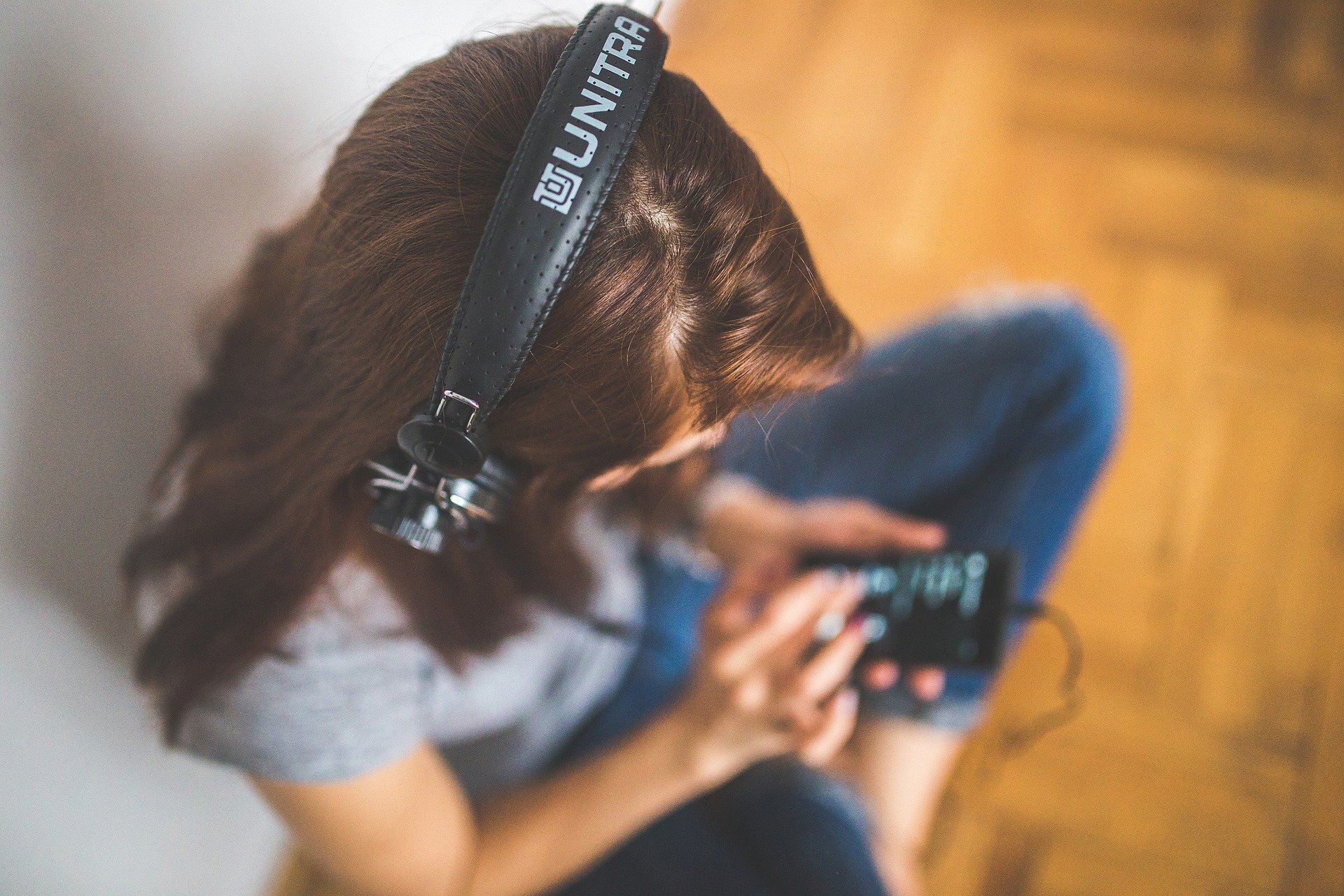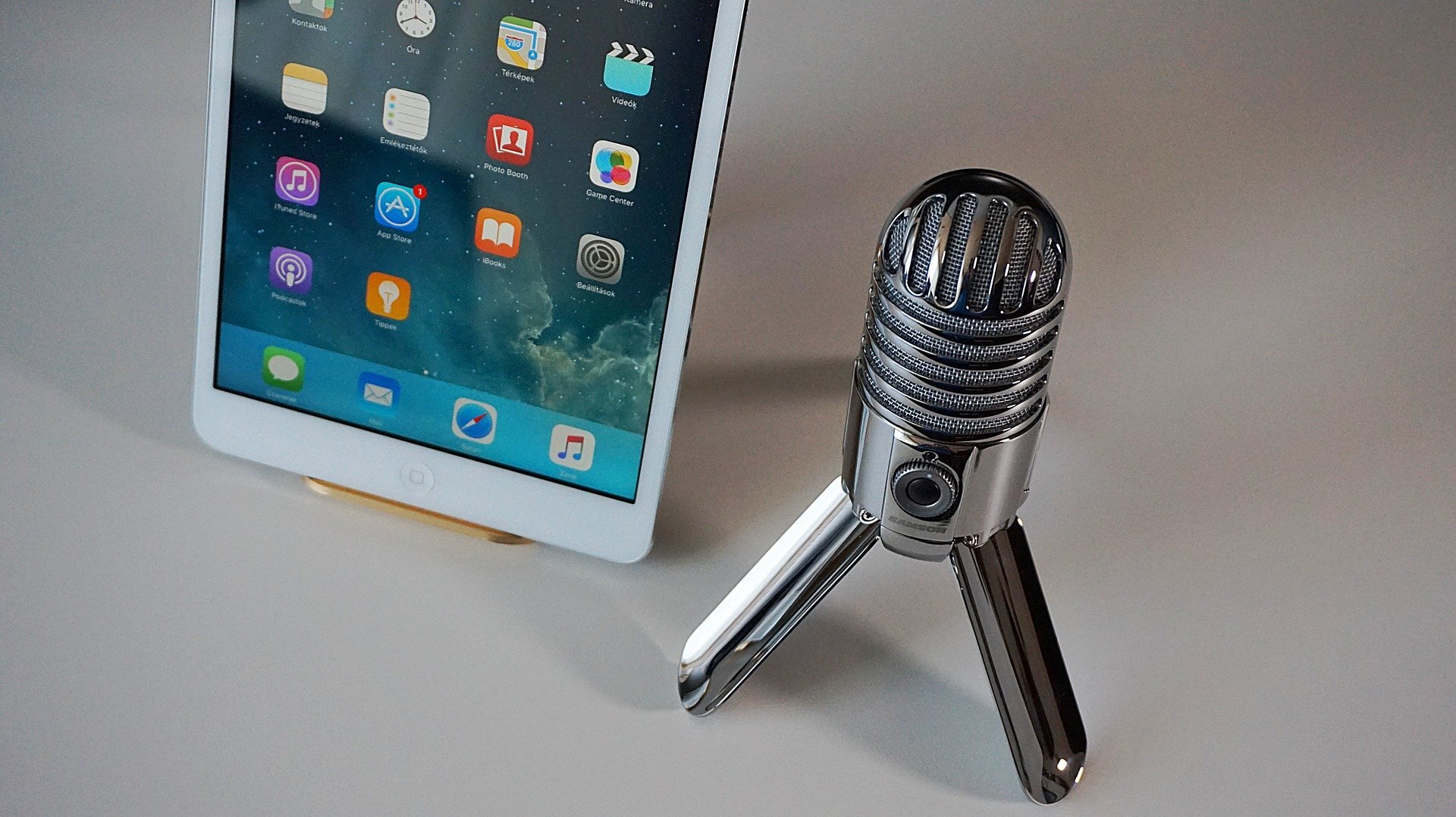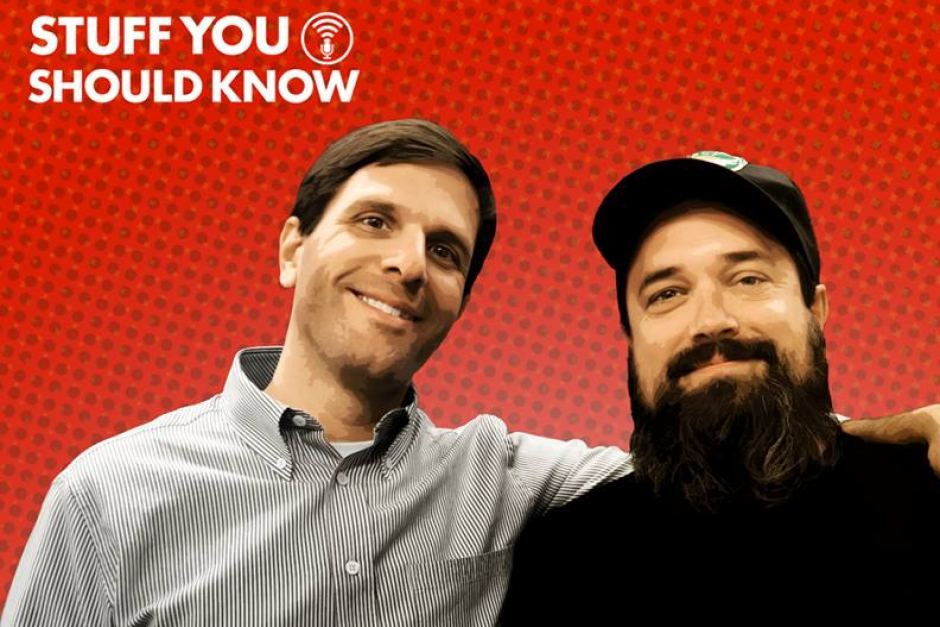Educational podcasts are on the rise, and for good reason. While there is no substitute for in-person teaching, the resources you use to complement it can make or break how well students do. This is true of education at any level. Whether you’re at a primary school, high school, college or university, podcasts can help students of all ages learn. They’re a great way to make your lessons accessible, engaging and informative.
7 Reasons to Use Podcasts in Education
Podcasts are an effortless way to take in information, and they can keep students engaged for longer. Here are 7 reasons why using podcasts in education helps students learn.
1. Listen whenever, wherever
Podcasts are easy to fit into daily routines. Downloadable to your phone, you can listen while doing mundane tasks like cooking or commuting. Students can learn content at any point they have a spare moment in their day, just by taking out their phone. This makes them perfect for people with busy schedules, or those who don’t have access to wifi all the time. Students who have other commitments, like jobs or caring for family members, can simply stick on a podcast during their commute.
Making education more accessible for students is vital. The easier it is for them to fit their education around the rest of their lives, the more likely they are to try.

2. Podcasts make it easier for students to catch-up
Missing classes can be stressful and demotivating. Once you find yourself falling behind, it’s difficult to not get overwhelmed by a mounting backlog of work. This is all too common for young people; two thirds of 15-16 year olds stress about poor grades, according to one survey of 72 countries. In the midst of a global pandemic, this problem will only worsen. Many students will have to self isolate and skip their lessons for 2 weeks or more. So making sure they don’t get left behind after missing a few days teaching is crucial.
Recording a podcast for your course could be the solution. Instead of being burdened with heavy and intimidating textbooks, students could simply listen to a podcast on their way to school to catch up. This would combat stress, and stop students from falling into a continual cycle of always being behind on work.
3. Listening might be better than watching or reading
When listening to an audio drama, you have to use your imagination to picture what’s going on. Your brain has to work at the pace of the audio, so your mind can’t wander off like it does when reading a textbook page. And because you have to actively think about what you’re hearing, you can’t only half pay attention like you might with video. So podcasts may be the best way to keep your students’ attention on the work.

Podcasts can also make teaching more accessible. Textbooks can be a chore in the best of times, but for people with visual impairments or dyslexia, they are an unnecessary uphill struggle. Instead of relying solely on written material, podcasts give students more options in how they work. This can only be a good thing.
4. Prioritise active learning in the classroom
Podcasts can give everyone essential information for the course, so they’re ready to explore it fully in lessons. Both active and passive learning are needed for a well rounded education. Passive learning involves going over content independently, for example by reading or listening to it. Active learning is much more hands on, and needs more direction from the teacher. If students are to pass their exams and get prepared for the world of work, both should be incorporated into their education.
Podcasts are a great way to teach new content, something suited for passive learning. Students can listen on their own, freeing up valuable classroom time for more active learning. Going through questions, participating in group discussions, and making things with others can all be part of this. Effective active learning needs constant support and direction. If students are already up to speed on the basics from podcasts, the valuable time spent face-to-face with teachers can be prioritised for active learning.
5. Podcasts help accommodate all learning styles
Different people prefer different styles of learning, so variety is key if you want to engage all your students. By adding auditory learning to the usual reading and writing, it helps create a more even playing field for everyone. Podcasting is also a great active learning activity. Getting students to make their own shows, or make something inspired by the content in a podcast, can be a great way to consolidate their knowledge.
6. Podcasts are the perfect revision tool
Podcasts are a wonderful revision tool to go over past material. Students can go at their own pace, pausing and replaying at parts they need more time on. Always having a bank of podcasts will be a godsend during those stressful few months of revising. Spaced repetition, or repeating your notes with gaps in between each repetition, is the best way to remember information. So being able to remind themselves of past lectures whenever they want can prove to be invaluable when preparing for exams.
7. Podcasts are easy to make and cost-effective
You don’t need fancy video equipment or editing software to make a great podcast. Armed with a bit of Googling and some patience, you can learn the ropes quickly. USB microphones don’t cost much and plug straight into any laptop or computer. Make one podcast, and it’s there to teach all your students for years to come. Compared to other (often less engaging) teaching methods podcasts are one of the most cost-effective options you could choose.

Podcasting also makes it easier to work from home as a teacher. Recording from the comfort of your own living room is super easy. This is bound to be useful in the next year. Self isolating and lockdown is stressful enough without having to worry about how you’re going to get essential work done too.
5 Ways to Use Podcasts in Teaching
So now you’re convinced podcasts in education are a good idea, how do you start? Where do you even begin? Podcasts are such a diverse medium, and there are a thousand ways you can use them to engage your students. But here are 5 ideas to give you some inspiration.
1. Set existing podcasts to listen to
There are loads of podcasts already out there, so why not take advantage? Over 500,000 podcasts are active with new episodes regularly, and education is one of the top categories. Podcasts made for students are designed to be easily understandable, to make preparing for exams as pain-free as possible. Revise - A Level English Lit Revision is hosted by students for students, and Mr Allsop History was created by a teacher specifically for GCSE modern history courses.
Or there are loads of podcasts made by experts. Some of these will not only make your subject less frustrating for students, but they might actually spark some joy. For example, there’s nothing like a podcast by comedians to make physics interesting. The Infinite Monkey Cage, hosted by popular physicist Brian Cox and comedian Robin Ince, is a laugh as well as informative. A quick google should give you dozens of podcasts to choose from, whatever subject you’re teaching.

2. Repurpose lectures as podcasts
Most classes already use lectures as part of their teaching methods. So why not record the lecture as you’re giving it? Upload the audio online, and add video if you want to give the option of watching as well. Getting distracted during a lecture is all too easy, especially if it’s 9am on a Monday. Crucial information might not always actually penetrate your students brains while they’re in class trying not to drift off. So being able to go back over lectures will be a life-saver for students who didn’t quite catch every word in the moment.
3. Record conversations with others
Adding another person to your podcast is an easy way to keep it entertaining. Even if you’re a charismatic speaker, it’s natural to zone out listening to a single voice for an extended period. Studies have shown that listeners are more engaged by dialogue than a simple narration. Your students will give your podcast more attention for longer if you spice it up with a bit of variety in who is talking. It’s also easier to keep your speaking pace right if you’re in conversation.
Enlist a colleague who also teaches your subject to have a discussion and record your conversation. Or you could get someone who knows nothing about your area, and record yourselves as you explain key concepts to them. Check out these examples for inspiration of how to use this format to keep your listeners interested all the way through.
- About Race hosted by Reni Eddo-Lodge, author of Why I’m No Longer Talking to White People About Race
- Stuff You Should Know hosted by Josh Clark and Charles Bryant
- What Am Politics? hosted by two friends, Richie and Steve

4. Use storytelling in your podcasts
Podcasts are an amazing medium for storytelling, and the genre is growing massively. More and more people are discovering the potential of podcasting for creating immersive worlds. It’s a well known truism that stories help people learn, and studies agree. Everything is easier to remember once it is part of a narrative. So turning some of your lessons into a story is a great way to improve your students’ learning.
You can do this for pretty much any subject. History and English are easy to turn into exciting dramas, but so are Chemistry and Maths, with a little creativity. Personify everything you are teaching into characters. For example, hydrogen is needy and gets with any old element, while all the noble gases are hermits who never want to bond with anyone. As for Maths, there’s a reason why practice questions involve otherworldly situations like customers popping to the shop to buy 5000 apples. Making everything you teach into a memorable story will help your students learn.
5. Get students to make their own podcasts
Teachers are always looking for new projects to set. Why not have the next one be for your students to create their own podcast together? Helping them develop lifelong skills like teamwork, research, writing and speaking will make your students more employable. This can also be part of that active learning that will make sure everyone really understands the subject.

Giving students projects to work on together is more important than ever right now. With fewer opportunities to meet new people because of COVID, students need other ways to find social interaction. Making a podcast in groups makes sure students are improving their people skills, even if they’re working from home.
Conclusion
So there you have it, 5 ways to start including podcasts in your teaching. As with anything new, it may take a while to figure out which methods suit your students best. But with some trial and error, you can find a solution to really improve their education.
Now that everyone’s having to adapt to a post-pandemic world, new ideas are coming all the time. It’s a perfect opportunity to experiment a bit. Even if you’ve never really got into podcasts before, they could be the big new idea that innovates your students’ learning experience. Especially useful for working from home, there’s never been a better time to invest in podcasts.
If you’re convinced, but you need a bit more help in actually making your podcasts, we have some articles to help. This one will help you set up the equipment you’ll need, and this one will get you started on recording a podcast from home. Good luck!







